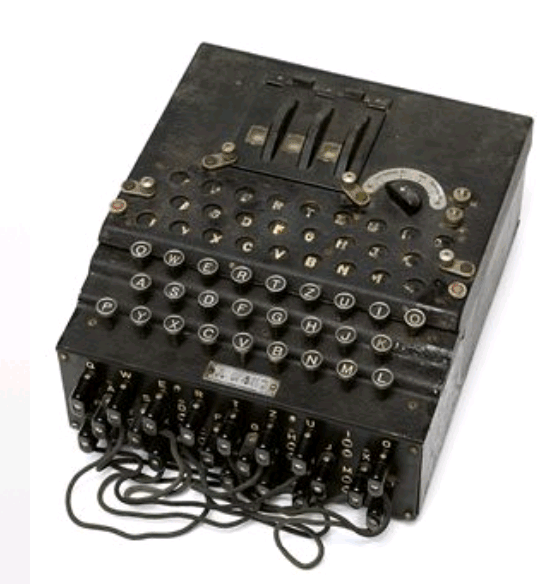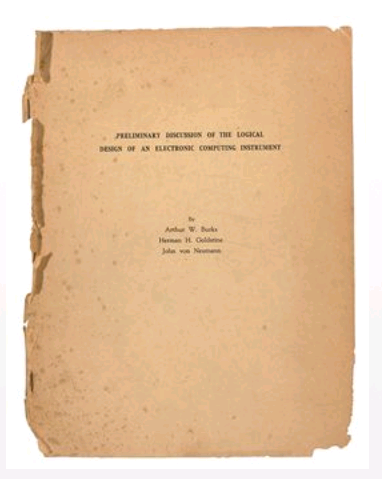| Christies sells Apple I but not the Turing papers |
| Wednesday, 24 November 2010 | |||
|
Several items of computer history were up for auction at Christie's London sale rooms yesterday. Some equalled or exceeded expectations while others failed to meet their reserve.
As explained in Computer History Under the Hammer an impressive selection of documents was due to be sold by auction by Christies yesterday and while it was billed as a sale of "Valuable Printed Books and Manuscripts" two hardware items were included in the category "Scientific Instruments" - an Apple I computer and an Enigma cipher machine. The Apple I which had been given an estimate of £100-£150,000 was sold for $133,250 to an Italian businessman and collector, Marco Boglione, who intends to restore it to working condition as part of a growing collection of Apple computers. The Enigma machine surpassed its estimate of £30-50,000: the price realized was £67,250.
Among the documents itemised in our previous article only one appears to have been sold. Lot 62, a reproduced typescript of Preliminary discussion of the logical design of an electronic computing instrument by Arthur W. Burks, Herman H. Goldstine and John von Neumann and "the first published formal conceptual paper on the stored-program computer" fetched £4375, comfortably inside the £3-5,000 estimate.
This leaves an ENIAC patent specification, a first edition of the Harvard Mark I manual, a first edition of a book on EDSAC, The Preparation of Programs for an Electronic Digital Computer by Maurice Wilkes et al and an offprint of a seminal work by Charles Babbage unsold. Also unsold was the collection of Turing papers for which a fundraising appeal had been launched by supporters of Bletchley Park. The bidding went to £240,000 - less than half of the £500,000 valuation Although the online fund had only managed to reach around £20,000 in advance of the auction the appeal was boosted on the eve of the sale by a $100,000 dollar donation from Google. The campaigners hope that the outcome of the auction will give them a second chance to secure the documents. However there is perhaps another message from the outcome of the sale. Maybe in these austere economic times people and organisations are unwilling to pay such high prices for copies of documents - it can't be a fluke that only one of the six historically significant computer-related lots sold. If you want to read the papers by Turing the very extensive online archive at www.turingarchive.org contains almost all of the offprints offered for sale plus a great deal more by way of lecture notes, manuscripts and drafts. The papers are available in scanned in digital form and are also physically available in the archive at King's College Cambridge - making it all the more difficult to see why Bletchley Park needs another set. Perhaps some of the money gathered should be used to provide a digital display of the archive. One of the two "missing items", a paper by Newman and Turing is also easily accessible online and there are multiple copies of the other, a slim Penguin paperback, for sale on the Internet. So what is so valuable about Max Newman's collection? Yes, it has a personal link to Turing himself in that Max Newman was Turing's co-worker, friend and mentor. There are indeed some annotations to at least one of the Turing offprints - but these are by Max Newman, an important person in his own right admittedly, but not with the same cachet as Alan Turing. When it comes to Turing's own hand there are four ink signatures and pencil inscriptions of Newman's initials - while the digitised archive has reams of his notes. Perhaps the value of this collection should be re-appraised before it returns to the market.
Related articles: Computer History Under the Hammer Appeal launched for Bletchley Park to buy Turing Papers Bletchley Park's bid to buy Turing Papers
|
|||
| Last Updated ( Sunday, 02 December 2018 ) |


